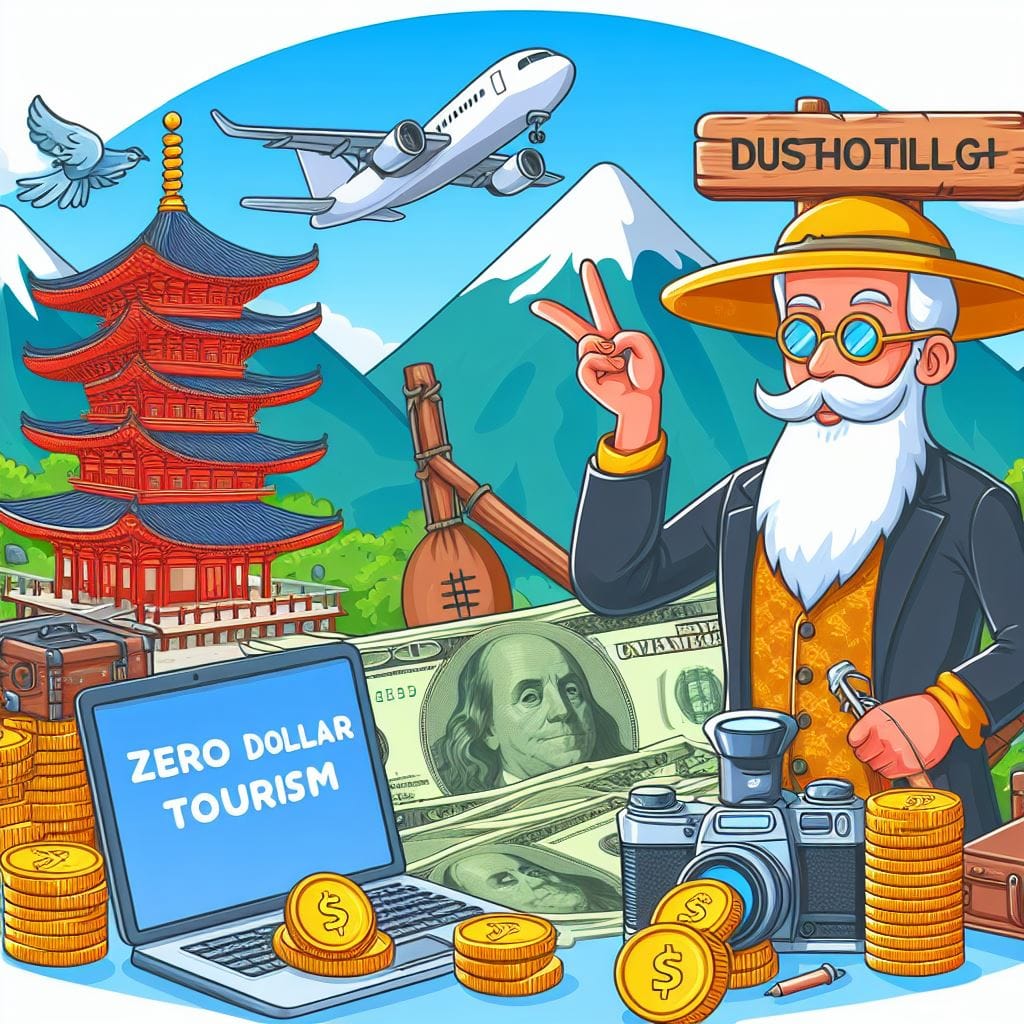The concept of “zero dollar tourism” has emerged as a controversial phenomenon in the travel industry, particularly prevalent in Asian markets. This model, often associated with package tours, promises travelers a cost-free journey, covering expenses like transportation, accommodation, and meals. However, beneath the surface of this seemingly attractive offer lies a complex web of economic implications, both positive and negative.
The origins of zero dollar tourism can be traced back to the competitive nature of the tourism market, where travel agencies sought innovative ways to attract customers. The model gained traction as it offered an affordable way for tourists to explore new destinations. The initial allure of zero dollar tours was their promise of a hassle-free experience at an unbeatable price, making travel accessible to a broader demographic.
As the model evolved, it became apparent that the “free” aspect was not entirely transparent. The tours are typically subsidized by commissions from tourist shopping at selected stores, which are often overpriced. Tourists are encouraged, and sometimes pressured, to make purchases, which compensates for the low upfront cost of the tour. This practice has raised ethical concerns about the exploitation of tourists and the quality of their travel experience.
Honey, it’s free!
The advantages of zero dollar tourism are evident in its ability to boost tourist numbers, particularly in developing countries where tourism is a significant economic driver. It democratizes travel, allowing those with limited budgets to experience international destinations. Moreover, it can lead to increased revenue for local businesses that partner with tour operators.
Well, not so free after all!
Conversely, the disadvantages are multifaceted. Zero dollar tourism can lead to a form of tourism that prioritizes quantity over quality. The focus on shopping can detract from the cultural and experiential aspects of travel. Additionally, it can strain local infrastructure and resources, leading to overtourism and environmental degradation. The economic benefits are often skewed, favoring the tour operators and affiliated businesses rather than the local economy.
The impact of zero dollar tourism on the sustainability of the tourism industry is significant. While it can generate short-term gains, the long-term effects can be detrimental. Sustainable tourism advocates for a balanced approach that respects local cultures, supports the economy, and minimizes environmental impact. Zero dollar tourism, with its emphasis on consumerism, often runs counter to these principles.
Zero Dollar Tourism in India
In the context of the Indian domestic tourism market, the penetration of zero dollar tourism is not as pronounced as in other Asian countries. India’s domestic tourism has traditionally been driven by religious and cultural motivations, with a strong emphasis on heritage and family-oriented travel. However, the global trend of seeking cost-effective travel solutions has influenced the Indian market, leading to the adoption of various budget travel models, including zero dollar tourism.
The Way Forward
The future of zero dollar tourism hinges on the industry’s ability to adapt and address its shortcomings. There is a growing call for ethical practices, transparency, and a shift towards more sustainable tourism models. As travelers become more conscious of their impact and seek authentic experiences, the tourism industry must evolve to meet these expectations while ensuring the benefits are equitably distributed.
Conclusion
In conclusion, zero dollar tourism presents a paradoxical blend of accessibility and exploitation, opportunity and challenge. It serves as a reminder that in the world of travel, the true cost of a journey cannot be measured solely in dollars and cents, but in the lasting impact it leaves on destinations and those who visit them. The industry must navigate this complex landscape with care, ensuring that the allure of free travel does not come at an unsustainable price.
As for you the travelers, be cautious and do not fall into the trap of “FREE”. First make thorough enquiries about the inclusions, the exclusions and the compulsions when booking a package or giving consent to such zero-dollar schemes. There is no free lunch, you might pay for it in some other form or kind.

No responses yet